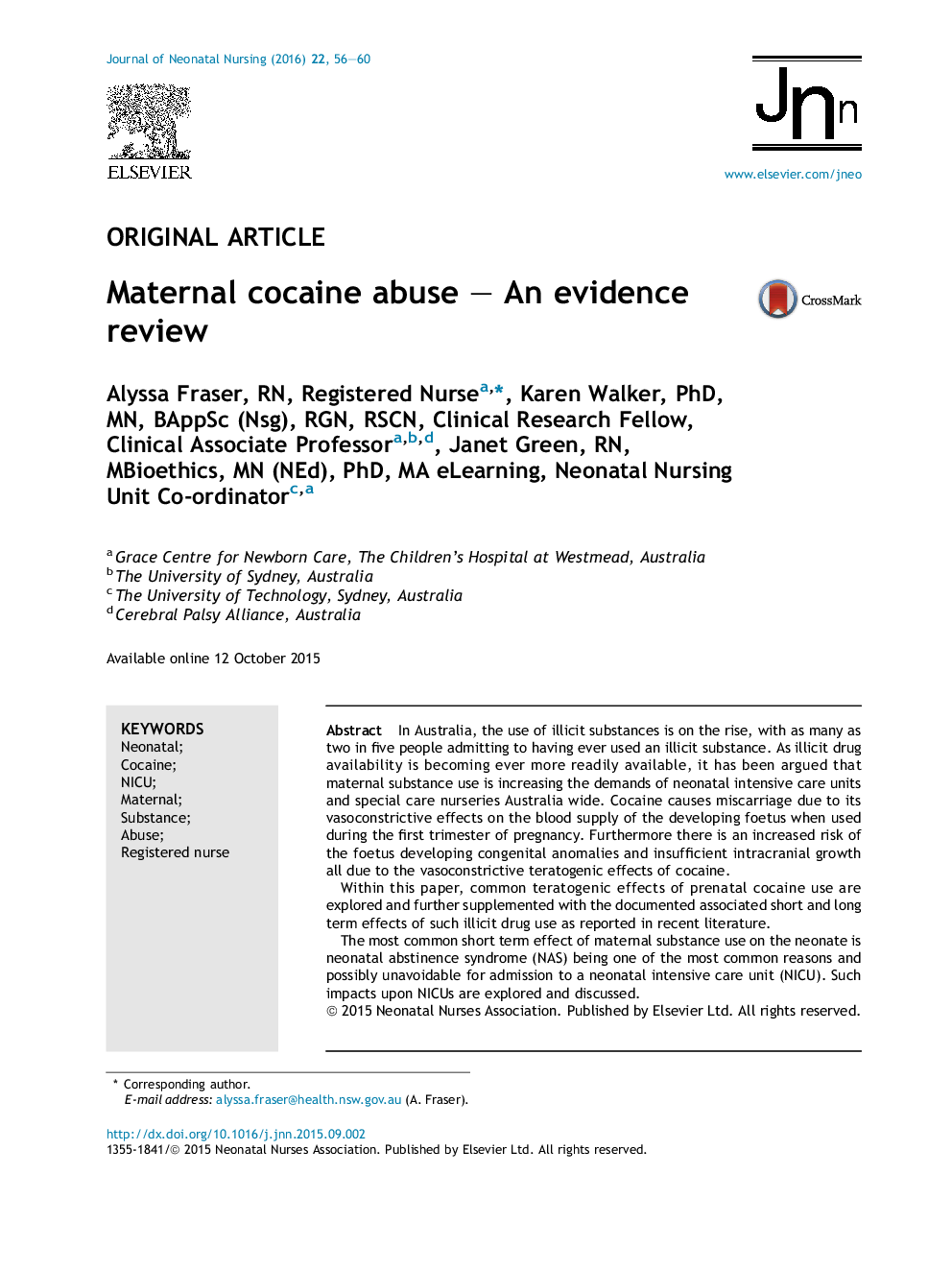| کد مقاله | کد نشریه | سال انتشار | مقاله انگلیسی | نسخه تمام متن |
|---|---|---|---|---|
| 2631245 | 1136812 | 2016 | 5 صفحه PDF | دانلود رایگان |
In Australia, the use of illicit substances is on the rise, with as many as two in five people admitting to having ever used an illicit substance. As illicit drug availability is becoming ever more readily available, it has been argued that maternal substance use is increasing the demands of neonatal intensive care units and special care nurseries Australia wide. Cocaine causes miscarriage due to its vasoconstrictive effects on the blood supply of the developing foetus when used during the first trimester of pregnancy. Furthermore there is an increased risk of the foetus developing congenital anomalies and insufficient intracranial growth all due to the vasoconstrictive teratogenic effects of cocaine.Within this paper, common teratogenic effects of prenatal cocaine use are explored and further supplemented with the documented associated short and long term effects of such illicit drug use as reported in recent literature.The most common short term effect of maternal substance use on the neonate is neonatal abstinence syndrome (NAS) being one of the most common reasons and possibly unavoidable for admission to a neonatal intensive care unit (NICU). Such impacts upon NICUs are explored and discussed.
Journal: Journal of Neonatal Nursing - Volume 22, Issue 2, April 2016, Pages 56–60
